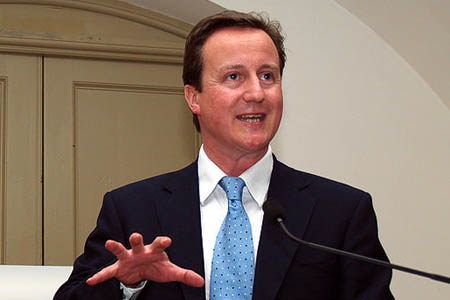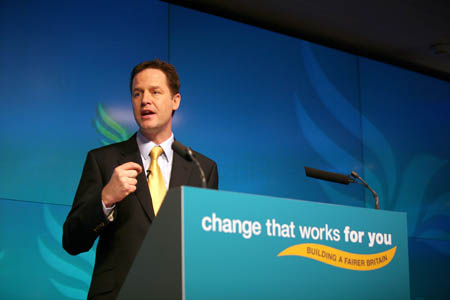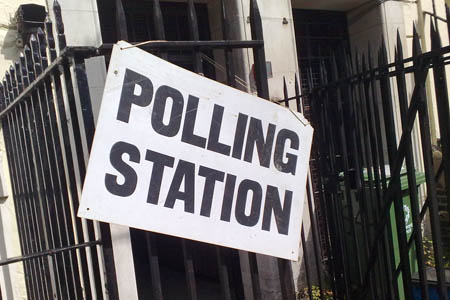Returning officers the length of the UK are dusting down their ballot boxes ready for Thursday’s vote, and pollsters are phoning fickle voters to try to pin down their intentions in what has turned out to be one of the least predictable elections for some time.
But how large does the great outdoors figure in the main parties’ policies?
The British Mountaineering Council and the Campaign for National Parks have been analyzing the manifestos to see just what we might expect if there’s a clear winner on 7 May.
The two organisations have been through the policies of Labour, the Conservatives, the Liberal Democrats, Plaid Cymru, the Green Party and the UK Independence Party. Because Scotland has its own mountaineering council and national parks council, the Scottish National Party manifesto was not included.
It’s clear outdoor issues are not at the heart of any of the parties’ main policies, though if you’re a swing voter who can’t quite decide in which box to place the cross, the analysis might just tip the balance. Or not.
A spokesperson for the BMC said: “The three main parties commit to protecting and expanding our network of green spaces.
“Labour intends to put forward new areas for protected landscape and habitat status, focusing on green corridors and wildlife networks to link up existing sites, and will also increase the area covered by forest and woodland.
“The Conservatives will produce a White Paper on protecting the natural environment, with a focus on restoring habitat, and will promote new green spaces and wildlife corridors as well as pioneering a new system of conservation credits.
“The Liberal Democrats will create a new designation – similar to sites of special scientific interest – to protect green areas of particular importance or value to the community. They will also aim to double the UK’s woodland cover by 2050 and introduce landscape-scale planning policies with a focus on water resources.”

Gordon Brown. Photo: World Economic Forum
Labour’s manifesto says: “We have created two national parks in the New Forest and South Downs, and given the public a right to roam our mountains, moors and heaths. We will now extend this to the whole English coastline.
“We will put forward new areas for protected landscape and habitat status, focusing on green corridors and wildlife networks to link up existing sites. And we will commit to increasing the area covered by forest and woodland.”
The Conservatives pledge: “We will maintain national green-belt protection, areas of outstanding natural beauty, national parks, sites of special scientific interest and other environmental designations which protect the character of our country’s landscape.
“We will review the governance arrangements for national parks and AONBs to ensure that they are more accountable to local communities.”
The Liberal Democrats manifesto states they will: “Increase the general right of access to the countryside, along the lines of the model introduced by the Liberal Democrats in Scotland. Introduce a new strategy to bring the UK back on target to halt the loss of habitats and species and as far as possible restore biodiversity by 2020.”
The LibDems also say they will: “Make national parks more democratically accountable, allowing a proportion of the park boards to be elected, and create a new designation – similar to site of special scientific interest status – to protect green areas of particular importance or value to the community.
“We will aim to double the UK’s woodland cover by 2050, introduce landscape-scale planning policies with a specific remit to restore water channels, rivers and wetlands and reduce flood risk by properly utilising the natural capacity of the landscape to retain water.”
The Greens say: “We would prioritise transport modes according to the following hierarchy: 1 walking and cycling; 2 public transport – trains, trams and buses – and rail freight; 3 cars; 4 heavy goods vehicles; 5 flying.”
UKIP has little to offer on outdoor issues, but says of energy: “UKIP now calls for an immediate halt to unjustified spending on renewable sources that has led to massive energy price hikes and fuel poverty. UKIP will: increase nuclear power generation to provide up to 50 per cent of our electricity needs; oppose wind farms in general and require large new wind power schemes to be funded by the market; ensure any large new wind farms are constructed offshore. UKIP regards onshore wind turbines and the accompanying power lines as eyesores in beautiful countryside.”
Labour’s take on energy is: “We are planning for around 40 per cent of our electricity to come from low-carbon sources by 2020 – renewables, nuclear and clean fossil fuels. We are committed to meeting 15 per cent of our energy demand from renewables by 2020.
“We already have more offshore wind-power than any other country in the world, and our plans could see this increase up to 40 times, alongside other renewable technologies such as tidal and marine, solar and sustainable bio-energy. We will make a decision early in the next Parliament on the feasibility of alternative options for a tidal energy project on the Severn, taking full account of the environmental impacts.
“We have taken the decisions to enable a new generation of nuclear power stations, and a programme of four clean coal plants with carbon capture and storage technology with a levy to fund them.”

David Cameron. Photo: Conservative Middle East Council CC-BY-SA-3.0
The Conservatives say: “The way our energy is produced and transmitted is stuck in the last century. A Conservative government will transform this ‘dumb’, unresponsive network and create an ‘electricity internet’ – a highly interactive network, based on a new smart grid that will interact with smart meters in people’s homes, to manage supply and demand. This will allow a huge increase in renewable power, and far greater choice for consumers.
“To limit harmful emissions from UK power stations, we will take steps to encourage new low carbon energy production, including: clearing the way for new nuclear power stations – provided they receive no public subsidy; creating four carbon-capture and storage-equipped plants, taking coal – one of the most polluting fuels of all – and transforming it into a low carbon fuel of the future; delivering an offshore electricity grid in order to support the development of a new generation of offshore wind power, and establishing at least two marine energy parks allowing communities that host renewable energy projects like wind farms to keep the additional business rates they generate for six years; giving incentives for smaller-scale energy generation, including capturing heat that is currently wasted.”

Nick Clegg. Photo: Alex Folkes/Liberal Democrats
The Lib Dems oppose new nuclear generating capacity. Their manifesto says it will: “Set a target for 40 per cent of UK electricity to come from clean, non-carbon-emitting sources by 2020, rising to 100 per cent by 2050, underpinned by guaranteed price support; and ensure that at least three-quarters of this new renewable energy comes from marine and offshore sources.
“Set out a clear renewables routemap to 2050, covering grid access and investment in electricity networks, and develop new incentives to promote renewable heat.
“Transform the electricity networks into a dynamic electricity grid that can better connect and integrate new, clean energy technologies particularly through the better use of sub-sea connections, leading to the development of a European supergrid.
“Invest up to £400 million in refurbishing shipyards in the North of England and Scotland so that they can manufacture offshore wind turbines and other marine renewable energy equipment.
“Block any new coal-fired power stations – the most polluting form of power generation – unless they are accompanied by the highest level of carbon capture and storage facilities.
“Reject a new generation of nuclear power stations; based on the evidence nuclear is a far more expensive way of reducing carbon emissions than promoting energy conservation and renewable energy.”
UKIP stands apart from the mainstream parties with its statement that: “UKIP accepts that the world’s climate changes, but we are the first party to take a sceptical stance on man-made global warming claims.”
Plaid Cymru says of its policy on energy: “Plaid Cymru demands the full devolution of all powers over energy policy to the National Assembly. Wales could be self-sustaining in energy generation by 2020. Wales must take full advantage of our renewable energy resources. We will support micro generation and other small-scale sustainable power generation schemes, including tidal, wave-power, on-shore and offshore wind, hydro and biomass.
“The move to large-scale renewable energy production in Wales must be speeded up if we are to achieve the required outcome in the necessary timetable. We are, however, completely opposed to the undemocratic Infrastructure Planning Commission. The future energy profile of Wales should be decided democratically, and by people who are accountable to the people of Wales.
“We call for emission performance standards for all new power stations and we reaffirm our opposition to the construction of any new nuclear power stations in Wales. We call for research into the creation of a European Smart Power Grid for the sharing of renewable energies across Europe.”
The BMC says it is also be planning for the next parliament, building a profile of the new parliamentarians who may have a personal interest in sport and the environment. “We will ensure, in the coming months,” a statement says, “that as many MPs as possible are informed of the BMC’s work, our current campaigns and the issues which are of interest to our members.”
More information on the analysis can be seen on the BMC’s website.
